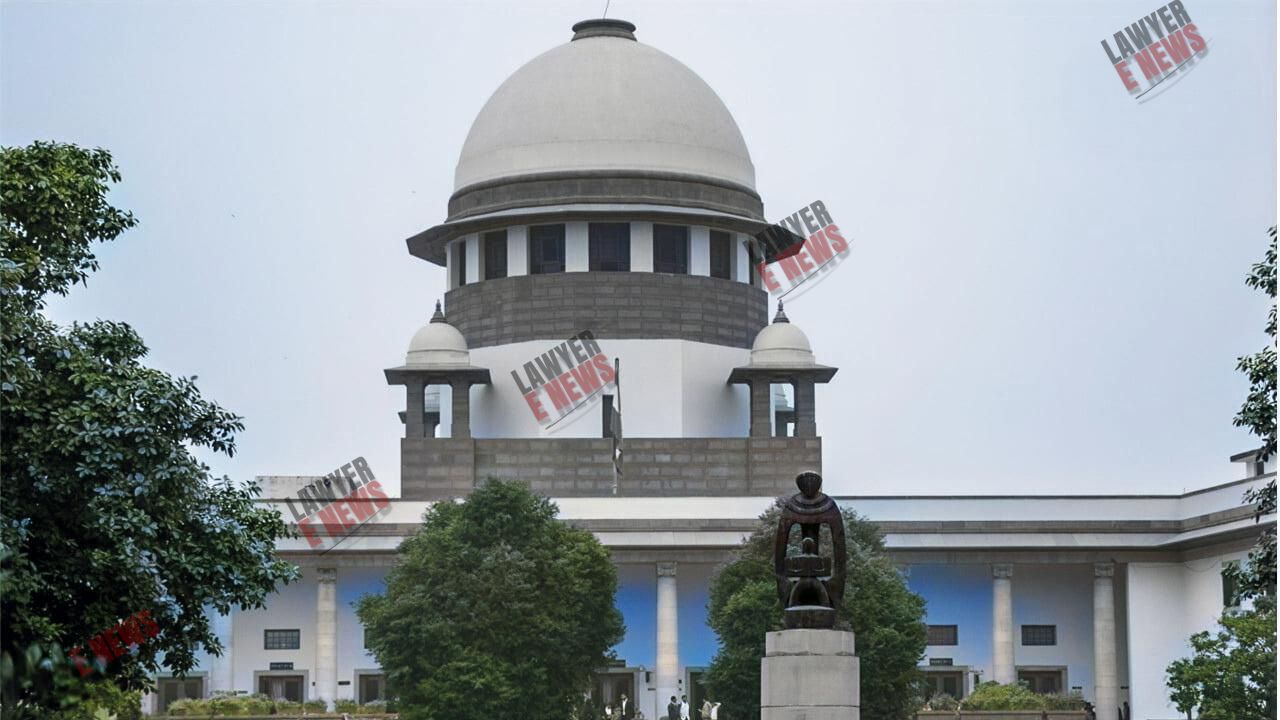-
by Admin
16 February 2026 1:47 PM



Possibility of False Implication on Account of Previous Enmity Cannot Be Ruled Out – In a powerful reaffirmation of the principle that criminal conviction must rest on evidence free from doubt, the Supreme Court of India acquitted Aslam alias Imran, who had been convicted under Section 302 IPC for a murder that took place in 1994, and whose conviction had been upheld by both the Trial Court and the Madhya Pradesh High Court.
The Court found serious contradictions in the testimonies of prosecution witnesses, unexplained delays in recording statements, and behavior deemed unnatural in light of the gravity of the incident. It held: “From the nature of the evidence placed on record by the prosecution, the possibility of the present appellant being falsely implicated on account of previous enmity cannot be ruled out.”
The case pertained to the murder of Zahid Khan alias Guddu on August 22, 1994 in Naya Mohalla, Jabalpur. According to the prosecution, the appellant Aslam alias Imran had attacked the deceased during a street altercation using a butcher knife, causing injuries that led to his death within hours. The FIR was filed by Shahid Khan (PW-1), the deceased's brother.
A Sessions Court convicted Aslam in 1995, sentencing him to life imprisonment. The High Court upheld the conviction in 2024, nearly 30 years later. The appellant then approached the Supreme Court, which critically re-evaluated the credibility of the witnesses.
The Supreme Court expressed deep skepticism about the prosecution’s evidence, especially the testimony of Shahid Khan (PW-1), who claimed to have witnessed the assault and carried the deceased to the hospital.
“Though he states that he had witnessed the incident, he did not report about the same either at the Police Station, which was a short distance away, or at Victoria Hospital.”
Noting that Shahid Khan had no bloodstains despite carrying a bleeding victim, the Court observed: “If the hand and head of the deceased Guddu were on his shoulder, then the absence of bloodstains on his clothes creates a serious doubt about the veracity of his version.”
The testimony of another witness, Rassu (PW-2), also failed to inspire confidence. He claimed to have seen the attack but admitted in crossexamination that he never informed the police or nearby constable, even though a police station was within walking distance. The Court said:
“The conduct of this witness… would make his evidence unnatural.”
Witness Asif Khan (PW-3), allegedly present at the scene, gave his statement 45 days after the incident. The Court remarked:
“Either his statement was recorded for the first time on 8th October 1994… or if an earlier statement was recorded, the same was suppressed. An adverse inference can be drawn on that count.” Another witness, Saiyad Wahid Ali (PW-4), confessed in crossexamination:
“It is true that I did not see Imran inflicting the injuries, I am saying this based on hearsay.”
The Court noted further contradictions between witnesses about who transported the deceased to the hospital and what they observed. It summed up:
“The contradictions in the evidence of witnesses with regard to presence of each other at the place of incident… and their failure to inform police despite proximity, cast serious doubt on the veracity of the prosecution’s version.”
The Supreme Court observed that the deceased was a history-sheeter facing multiple criminal cases, and that there was undeniable prior enmity between him and the appellant. In such a context, the Court stated:
“Enmity is a double-edged weapon. It provides motive, but also raises the possibility of false implication.”
Rejecting the findings of the lower courts, the Court concluded:
“The evidence of these witnesses is not the one which would inspire confidence. In our opinion, the appellant is entitled to benefit of doubt.” The Court then acquitted the appellant, stating:
“The impugned judgment and order… are quashed and set aside. The appellant is acquitted of all the charges… His bail bonds shall stand discharged.”
This judgment not only frees a man after three decades of uncertainty, but also reiterates the judiciary's commitment to the golden thread of criminal law—that every accused is presumed innocent until proven guilty beyond reasonable doubt. In exposing procedural lapses, delayed investigation, and inconsistent witness accounts, the Supreme Court sent a clear message: justice must never rest on fragile or manufactured testimony.
“The prosecution has failed to prove its case beyond reasonable doubt… and therefore the conviction cannot be sustained.”
Date of Decision: March 27, 2025
